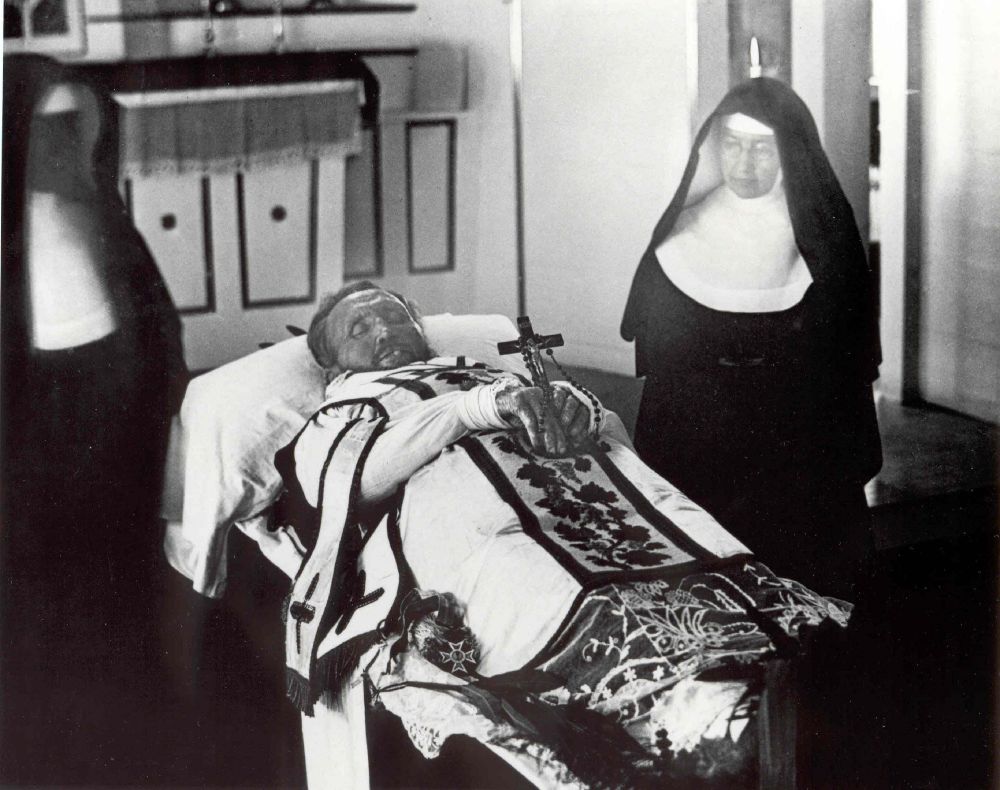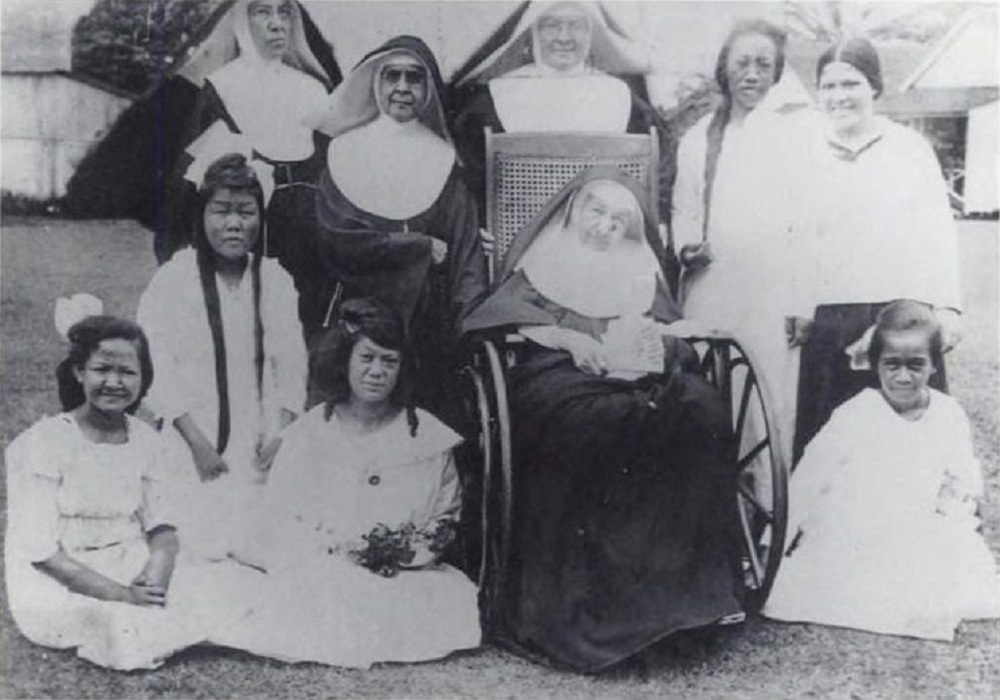The crisis of our times is a crisis of saints. Life is full of difficulties, and for those who have the high ideal to become a saint, many difficulties. Difficulties are the gifts that Jesus gives us to unite ourselves to Him on the Cross. We should not shy away from the challenges of our life but see them as an opportunity and the means to grow in holiness. This mindset is essential for leaders: it is the foundation of leading with love and in service to others.
St. Marianne Cope, an American saint from the 19th Century, perfectly models the courageous leadership needed to face difficult circumstances when they arise. Marianne was formed by the hardships of her life: she desired to join the convent from an early age but was unable due to her father’s sickness and early death. Marianne was the oldest of ten children and quit school after eighth grade to work in the factory to help support her family during this time. During this time, her generosity and compassion grew for others. She developed a love for service and desire to give herself whole-heartly to Christ.
This time of intense work and service to her family is how God started to prepare her for an even bigger opportunity. She eventually joined the Sisters of Saint Francis in Syracuse, New York. There, Marianne said yes to leading. She opened schools and hospitals, served as a principal, and eventually became the Superior General of the Order in 1883. Then, an opportunity for deeper service arose in Honolulu. In Molokai, people were dying from leprosy and the hospitals were overloaded with patients; many people were afraid of the disease and the toll it was taking.

Mother Marianne looked at this situation and her heart was moved for the compassion for those dying. She wrote to a local priest:
I am hungry for the work and I wish will all my heart to be one of the chose ones, whose privilege it will be to sacrifice themselves for the salvation of the souls of the poor islanders…I am not afraid of any disease, hence, it would be my greatest delight even to minister to the abandoned ‘lepers.’1
Not only did she assign six sisters to go to Hawaii, but she herself would lead them. God had been preparing her for this moment all her life: she not only said yes to deeper service, but she did so cheerfully and with joy. She once said, “I am not thinking of the reward. I am working for God and do so cheerfully.”2
Saint Damian, the apostle of Molokai, met Mother Marianne and her sisters when they arrived. The two saints consoled one another in the mission that God have given them. Mother Marianne was Damian’s nurse in his final days and cared for him until the day of his death. After his death, Mother Marianne continued the mission on Molokai for the next 30 years. She died of natural consequences and never contracted the horrible disease that took so many other lives.
There are two essential leadership qualities that we can learn from Saint Marianne Cope.
First, she teaches us that leaders should lead by going first. When difficult opportunities come our way (which they will), do we look to send someone else in or do we see it as our role to lead from the front? Christian leaders must lead those who are following them by their example, especially when approaching hardships in their work. Leaders are not meant to just be wise sages on a hill that give advice and then never enter the messy, complicated troubles of those they serve.
Several years ago, Pope Francis, during a Holy Thursday homily, spoke about priests who fail to embody this kind of leadership but rather become “managers”; he said that when a priest “doesn’t put his own skin and own heart on the line, he never hears a warm, heartfelt word of thanks. This is precisely the reason why some priests grow dissatisfied, lose heart and become, in a sense, collectors of antiquities or novelties, instead of becoming shepherds living with ‘the smell of the sheep.”3 This admonition is not just for priests but for all leaders. Saint Marianne modeled sacrificial leadership through her willingness to not only send six of her sisters to Hawaii, but to go herself. We, too, need to be willing to lead from the front.

Second, not only did St. Marianne lead from the front, but she also desired the work and got to work right away. We may frequently picture saints in chapels or on holy cards, but Saint Marianne shows us that saints are hardworking and adding to the Kingdom through their dedicated service to others. Assuredly, the saints had set times of prayer and, from the overflow of the interior life, many of them had a significant impact in the world. Saint Marianne and her sisters lived a life of service even from the very first moments of arriving in Hawaii. They immediately began operating one hospital and then quickly started another one within a few years. The sisters’ dedicated service was driven by their daily encounter with Jesus in the Mass and prayer. They brought their love of God into the work for their neighbor that had been entrusted to them.
We, as leaders today, need to be hardworking and willing to take on arduous tasks. Leaders cannot shy away from hardship and hope others will jump in first. Rather, a leader is one who is willing to serve and to put love into all they do. This approach enables Christian leaders to transform the society they live in and bring all things to Christ.
